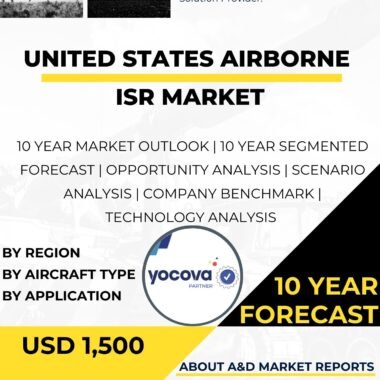Description
The Spain Defense UAV Market is a critical and rapidly growing sector that plays a pivotal role in enhancing the capabilities of the Spanish Armed Forces. Unmanned Aerial Vehicles (UAVs), commonly known as drones, have revolutionized military operations by providing real-time intelligence, surveillance, reconnaissance, and targeting capabilities. These unmanned systems offer significant advantages, including increased situational awareness, reduced risk to human personnel, and enhanced operational flexibility across various defense domains.
The growth of the Spain Defense UAV Market can be attributed to several key factors. First and foremost, advancements in UAV technology have significantly improved the performance, endurance, and capabilities of these aerial platforms. Modern UAVs are equipped with high-resolution cameras, infrared sensors, and other sophisticated payloads that provide the Spanish military with valuable data and intelligence for decision-making on the battlefield.
Moreover, the versatility of UAVs is another significant driver of market growth. These unmanned systems can be deployed across all branches of the Spanish Armed Forces, including the army, navy, air force, and special forces. UAVs support a wide range of military applications, such as reconnaissance and surveillance, target acquisition, border security, disaster response, and anti-terrorism operations.
The Spanish Armed Forces recognize the strategic importance of investing in UAV technology to maintain a strong defense posture. UAVs offer a force multiplier effect, enabling military personnel to cover vast areas, access hard-to-reach locations, and gather critical information from the air.
Furthermore, the Spain Defense UAV Market benefits from the integration of AI and autonomous capabilities into UAV systems. AI-powered UAVs can autonomously navigate through complex environments, adapt to changing conditions, and even make decisions based on predefined rules. This level of autonomy reduces the operator’s workload and allows the Spanish military to employ UAVs for more complex and sophisticated missions.
In addition to surveillance and reconnaissance, UAVs contribute to the Spanish military’s precision strike capabilities. Armed UAVs can engage enemy targets with precision-guided munitions, minimizing collateral damage and reducing the risk to friendly forces.
Moreover, the demand for UAVs in Spain’s defense landscape is fueled by their cost-effectiveness and efficiency. Compared to manned aircraft, UAVs have lower operational costs and can be rapidly deployed for time-sensitive missions. They also reduce the risk of casualties during dangerous missions, making them invaluable assets for the Spanish military.
However, the growth of the Spain Defense UAV Market also presents challenges. One of the primary concerns is the evolving threat landscape, including the potential for adversarial UAVs. The accessibility of commercial drones and their potential misuse by adversaries poses security risks. To mitigate these risks, the Spanish military must develop effective counter-drone strategies to protect critical assets and infrastructure from potential UAV threats.
Moreover, the integration of UAVs into national airspace requires adherence to strict regulations and airspace management protocols. Ensuring the safe and efficient integration of military UAV operations with civilian aviation is essential to prevent potential accidents and airspace congestion.
Another challenge lies in ensuring the cybersecurity of UAVs and their communication systems. As UAVs become more connected and integrated into military networks, the risk of cyber attacks on these platforms increases. Robust cybersecurity measures are essential to safeguard sensitive data and prevent unauthorized access to the UAV’s control systems.
Furthermore, the Spain Defense UAV Market must address public perception and ethical considerations regarding the use of UAVs in military operations. Clear communication and transparency about the capabilities and intended use of UAVs are necessary to address concerns and build public trust in their responsible deployment.
In conclusion, the Spain Defense UAV Market is a critical enabler of the Spanish Armed Forces’ capabilities, providing advanced unmanned aerial systems for reconnaissance, surveillance, intelligence gathering, and precision strike capabilities. The market’s growth is driven by advancements in UAV technology, the versatility and efficiency of these systems, and the integration of AI and autonomous capabilities. UAVs offer a force multiplier effect, enhancing the Spanish military’s situational awareness and operational flexibility across various defense domains. However, challenges related to the evolving threat landscape, airspace integration, cybersecurity, and public perception must be addressed to ensure the responsible and effective use of UAVs in safeguarding national security and interests.




